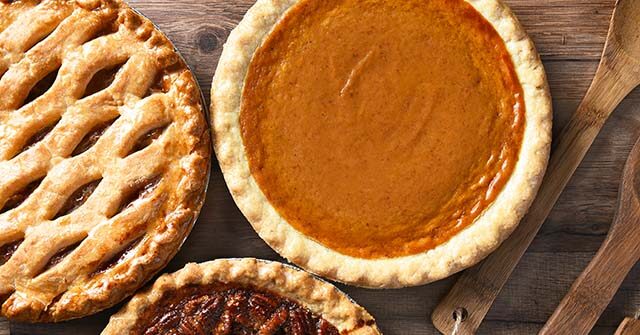This year, Thanksgiving desserts are set to be more expensive for Americans. Traditionally, pies, tarts, and turnovers are integral to Thanksgiving celebrations, but the Consumer Price Index (CPI) reveals a significant price increase since the Biden administration took office. Specifically, from October 2020 to October 2024, the prices for frozen and refrigerated bakery products have surged by nearly 27%. This financial strain is noteworthy as it reflects ongoing economic conditions that have affected consumer spending power during the holiday season.
Moreover, sweet treats beyond pies are also seeing price hikes. Fresh sweet rolls, coffee cakes, and doughnuts have become more costly, with a rise of around 24% in their pricing over the same period. These increases further emphasize the inflationary pressures impacting everyday consumers, which are particularly felt during festive occasions when families often indulge in more lavish desserts. As households prepare to celebrate Thanksgiving, they face the double-edged sword of increased celebratory costs alongside their traditional favorite treats.
In addition to the rising costs of pies and sweet rolls, other baked goods such as cakes, cupcakes, and cookies are experiencing substantial price increases as well, climbing nearly 26% since the beginning of the Biden term. This broader increase in dessert pricing highlights a troubling trend for consumers who wish to enjoy a variety of treats. The affordability of these additional items is now a concern for many families planning their Thanksgiving menus, indicating a shift in how everyone’s holiday budgeting may take shape this year.
The economic landscape in which these price changes are occurring forms a backdrop to the Biden administration’s tenure, with Thanksgiving 2024 potentially marking the final year of its influence on holiday spending. As the election cycle approaches, the economic issues have emerged as a pressing topic for voters, with former President Donald Trump often being spotlighted as better capable of handling inflation and economic challenges compared to the current leaders. This perception may sway public sentiment and influence future electoral outcomes in light of ongoing economic difficulties.
Ultimately, Vice President Kamala Harris’s refusal to acknowledge her role in the current economic climate during her short-lived presidential campaign adds another layer of complexity to the prevailing sentiment among voters. Her position, including a controversial tie-breaking vote on the $1.9 trillion American Rescue Plan, has drawn scrutiny. Many Americans are reflecting on their experiences of increased living costs over the past years and how they relate to the broader economic policies of the current administration.
In summary, this Thanksgiving, families can anticipate not only the joy of gathering but also the weight of increased dessert prices due to significant inflation since the onset of President Biden’s administration. Whether enjoying traditional pies, cakes, or other sweet treats, the implications of higher costs and changing economic conditions will likely shape both holiday celebrations and political discussions in the lead-up to 2025. The stakes of managing inflation and responding to the needs of consumers will remain at the forefront of American discourse as families navigate the challenges of the holiday season.

